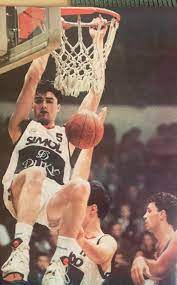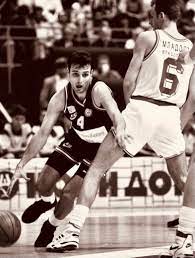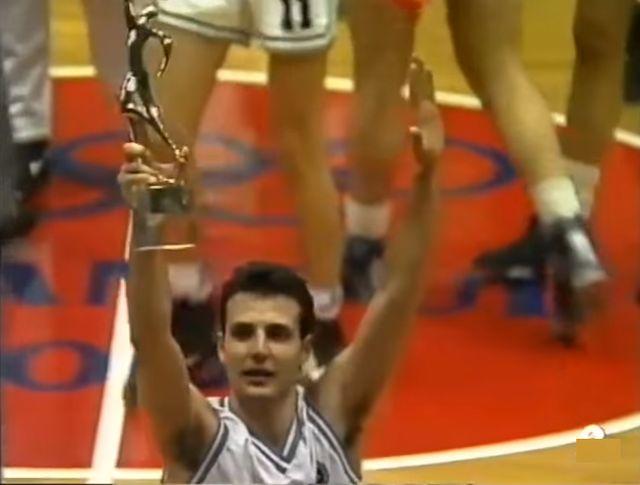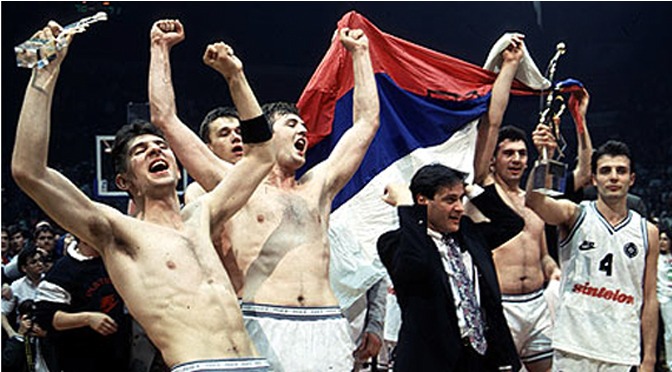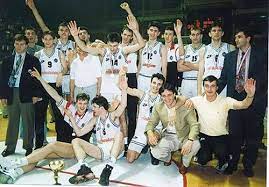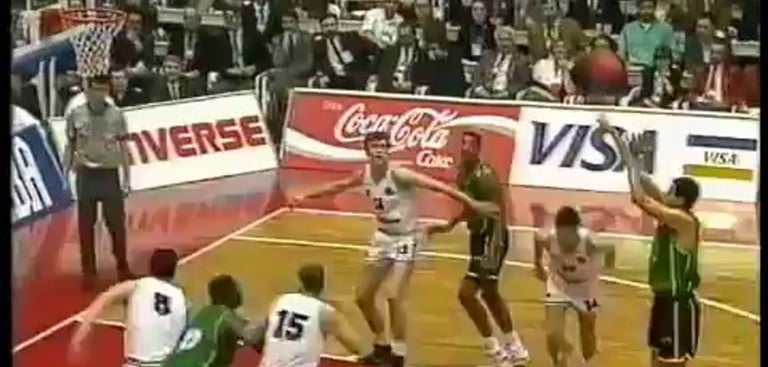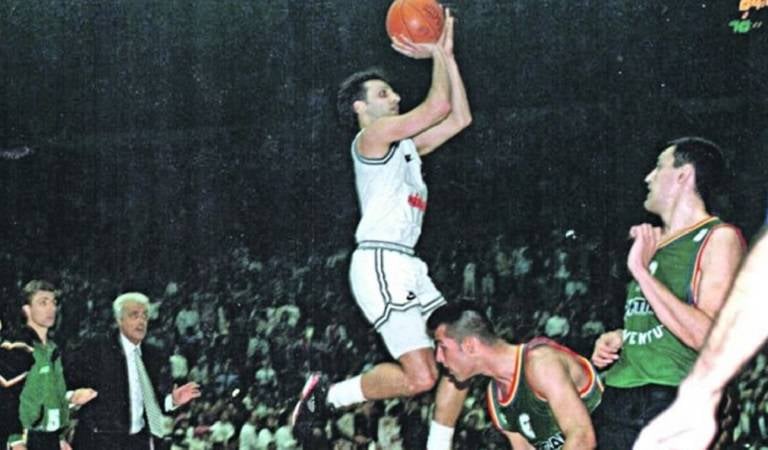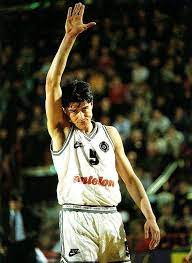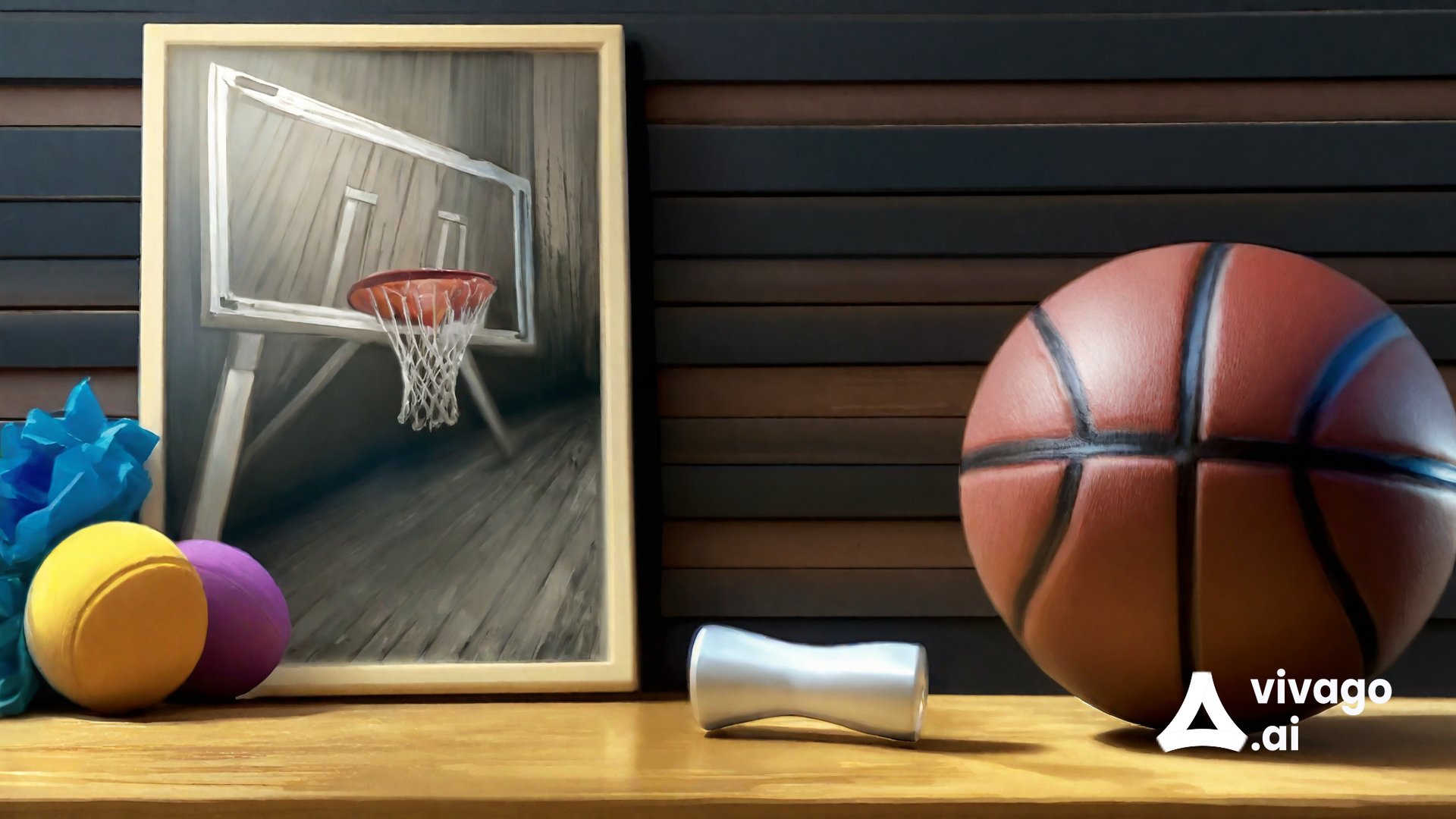
Final Four - Istanbul 1992
"The Miracle of Bosporus "
RETROFFF (FINAL FOUR FOLKLORE)
Antreas Tsemperlidis
5/1/20257 min read
Thirty-three years have gone by since the legendary "Miracle of the Bosphorus". The prolonged ringing of the phone shattered the silence of a warm May night. Half-asleep, a man reached for the receiver and answered in a hoarse voice:
Istanbul 1992 - Antreas continues the FFF journey with a story that gave birth to a legend. Lets roll back the years once more. Here is how the F4 story continued to unfold...
Thirty-three years have gone by since the legendary "Miracle of the Bosphorus". The prolonged ringing of the phone shattered the silence of a warm May night. Half-asleep, a man reached for the receiver and answered in a hoarse voice:
— "Yes, who is this?"
The voice on the other end sounded familiar—he instantly recognized it. It was Dragan Kićanović, the vice president of Partizan.
— "Željko, good evening. I’ll get straight to the point. I’m here with Savić, and we’ve decided to offer you the position of head coach for the team."
Željko Obradović was stunned. He struggled to comprehend what he’d just heard.
— "Dragan, what are you talking about? Coach? What team? Do you even know where I am right now?"
— "Of course I do. I need your answer."
— "How did this even come up?"
— "Weren’t you the one who told me you’d like to coach someday?"
— "I was joking. I didn’t mean it."
— "I want an answer now, Željko."
— "Give me a month to think about it."
— "You’ve got until morning. Good night."
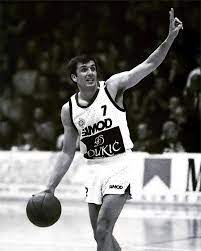

Still holding the receiver, Željko Obradović sat motionless, trying to process what had just happened. He had to weigh his options carefully and come to a decision. On one side, there was the national team and the upcoming EuroBasket tournament just weeks away, where he was set to captain his country. On the other, his beloved Partizan—calling for his help in a time of need. All night, an internal battle raged within him, until finally, at dawn, he knocked on the door of Dušan Ivković’s hotel room. He had made up his mind. The player Željko was gone. The coach Obradović had just been born. In the three weeks that followed that fateful May night, nothing would ever be the same again. On June 26, 1991, Croatia and Slovenia officially declared their independence, delivering the final blow to a nation already in its death throes. Three days later, Ivković’s players, setting aside for 40 minutes the horror of war and civil conflict, stood atop the winners’ podium. The greatest European basketball team of all time took its final breath in Dušan Ivković’s arms and passed into legend. Basketball, like everything else, could not escape the consequences of war. FIBA acted swiftly - teams from the former Yugoslavia would play their European matches on neutral ground, far from home. Partizan was one of those teams, now led by a rookie coach and a roster of untested youth.
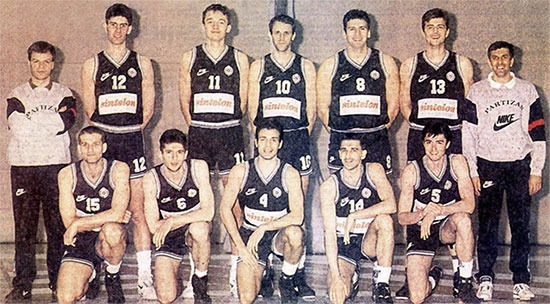

With an average age of just 22, Obradović’s young guns wandered like nomads and eventually landed in Madrid, Spain. In the gym of Fuenlabrada, the "Crno-Beli" would fight for their place in the Final Four in Istanbul. Driven by hard work and fueled by the presence of two future European champions on the court, Partizan began their journey in the 1991–92 European Champions Cup in Hungary. Two easy victories over Szolnoki VSK paved the way to the group stage, where they would face Den Helder, Maes Pils, Philips Milano, Joventut Badalona, Bayer Leverkusen, Estudiantes, and a struggling Aris Thessaloniki.
Aleksandar Đorđević, 24, and Predrag Danilović, 22, counterbalanced the team’s inexperience with sheer talent and leadership. With a 9–5 record, Partizan finished 4th in the group, advancing to the quarterfinals where they were to face Italy’s Buckler Bologna—led by another young coach, Ettore Messina.
Both Messina and Obradović were engaged in a tactical chess match, each looking for a way to outwit the other and secure a coveted Final Four berth. The Italians had experience and home-court advantage; Partizan had youthful energy and fearless ignorance of the stakes. In a show of goodwill, FIBA allowed the first leg to be played in Belgrade, at the legendary Hala Pionir. In front of a sold-out crowd, the frenzied Serbian fans propelled their team to a passionate victory. The return leg in Italy gave new life to the series, as Bologna managed to level things. Everything now hinged on the third and decisive game. That night, Danilović delivered a masterclass performance in overtime, sealing not only Partizan’s progression to the Final Four but also earning himself a future contract with the Italian club.
So, Istanbul it was – and in the Queen of Cities, four contenders dreamed of sitting on the imperial throne. The dreams of players and coaches were mirrored in the blue waters of the Bosporus, and everyone imagined themselves as the new Conqueror.
In the Spanish “civil war,” Badalona toyed with Estudiantes, and the big favorite of the Final Four was waiting to learn its opponent in the final on April 16. There was also a favorite in the other semifinal – Philips Milano, with Riva, Johnny Rogers, and the "gorilla" Darryl Dawkins.
Obradović had to find a way to stop the "Nembo Kid" and, luckily, had plenty of advisors. The "Freemasonry" of Yugoslav basketball had moved to Abdi İpekçi Arena to support their spiritual child. "The Professor" Aca Nikolić was by Željko's side from the beginning, acting as a shadow technical advisor with high-level oversight. Dušan Ivković was also in Istanbul, officially under the pretense of collaborating with a sports newspaper – just to gain access to the locker rooms. I doubt Duda wrote even a single word about the event, but I don’t think anyone cared.
Obradović, armed with advice from the “big minds,” implemented a trick – using two pure point guards to break the Italians' 1-3-1 zone, the famed Aquila (Eagle). Dragutinović played alongside Đorđević, with a dual role: helping Sale organize the offense and neutralizing Riva. In hindsight, it worked perfectly – Partizan went on a 22–3 run and by the time the Italians realized what was happening, the bird had flown and Partizan had booked their ticket to the final.
The best team in Europe at the time, Badalona – led by Villacampa, Spanish internationals, and two talented Americans – gave coach Lolo Sainz every reason to believe that, with Joventut, he could relive the glory days of Real Madrid, where he had been crowned European champion both as a player and coach. In a final between debutants (first-ever European Cup final appearance for both teams), the ten players waiting for tip-off measured each other up with their eyes. Starting for Badalona were Rafa Jofresa, Villacampa, Harold Pressley, Corny Thompson, and Morales. Obradović sent in his warriors – the duo of Đorđević and Danilović, Ivo Nakić (the only Croatian on the roster with a powerful personal story), Slaviša Koprivica, and Stepanović with his bleached shoes.
The game was poor and won’t be remembered for its quality. As a typical Spanish team, Badalona wanted to push the tempo and run, something Obradović avoided like he did the plague, fully aware of his lack of depth in his bench. So he kept the pace low and relied on his two stars to carry the scoring, each taking a half, Đorđević in the first first, Danilović in the second. The Spaniards fell into the trap and -much like he did with Riva- Dragutinović also shut down Villacampa, forcing Badalona to look for solutions from the perimeter, mainly by the hands of the younger Jofresa brother, Tomás. Under the basket, Koprivica, Stepanović, and the young Rebrača exchanged blows with Morales and the hefty Cornelius throughout the game. Halftime ended with the Serbs up 40–34. Midway through the second half, Partizan led by 8 points – until the basketball pride of former NBAer Harold Pressley kicked in. With individual efforts, the American turned the game around, and Badalona went up 68–65. Aleksandar Đorđević answered with a fastbreak three to tie the game. With 33 seconds left, Villacampa missed a 1+1 free throw, but Morales grabbed the rebound and drew the 5th foul on Danilović. The Spanish center also missed his free throws, but the ball landed in the hands of Tomás Jofresa. With 30 seconds left, he nearly ran out the shot clock and, with 10 seconds to go, scored with a solo move, becoming the hero of the final – for the moment.
As the clock ticked, the man with nerves of steel took the ball on the right side of the court. Under Jofresa’s pressure, he moved just outside the 6.25-meter line. Planting his feet firmly and almost not looking at the basket, Saša Đorđević launched it – and with 4 seconds left, made what I believe is "The Shot" in the history of European cups. The Serbian guard’s precision missile floored the Spaniards and froze time for the children of war – the Cinderella team of the Final Four. The youngsters celebrated wildly, and Danilović ran straight to the stands to embrace Nikolić – who, had he held a magic crystal ball, would surely have smiled seeing how far this apprentice would go. Just months ago, he wore shorts – now he was a European champion, the second-youngest ever.
And as for Željko Obradović? The journey had only just begun....
